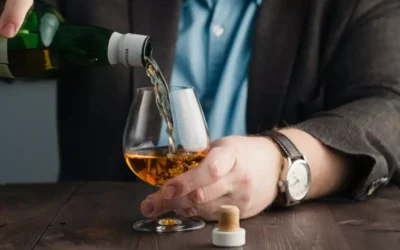Content
The difficulty in diagnosing social drinking is that many people who could be considered alcoholics are likely in denial about the severity of their addiction. The transition from social into binge drinking can occur over a long period of time, and the individual is often unaware or unwilling to acknowledge this change. It is only when they are forced to make a change that the problem truly becomes apparent. At San Antonio Recovery Center, the goal of alcohol addiction treatment is to guide individuals toward living a healthy and sober life.
Do introverts drink more?
Ultimately, while evidence suggests that introverts and extroverts have different drinking patterns, it's hard to say if one group actually drinks more than the other. And, particularly when it comes to addiction, there really isn't enough evidence to suggest one personality type has a higher likelihood of alcoholism.
Alcohol is a toxic substance that absolutely causes damage to the body, even in small doses. Binge drinking puts people at risk for developing high blood pressure, certain cancers, and increased exposure to dangerous situations. “Binge drinking is also unhealthy, defined as reaching a blood alcohol level of 0.08. This level can be reached for most people by four or five drinks in a two-hour span,” Lander said. The Substance Abuse and Mental Health Services Administration also defines heavy alcohol use as binge drinking five or more times per month.
Social Drinking vs. an Alcoholic
If you feel that you sometimes drink too much alcohol, or your drinking is causing problems, or if your family is concerned about your drinking, talk with your health care provider. Other ways to get help include talking with a mental health professional or seeking help from a support group such as Alcoholics Anonymous or a similar type of self-help group. Psychologists can also provide marital, family, and group therapies, which often are helpful for repairing interpersonal relationships and for resolving problem drinking over the long term. Family relationships influence drinking behavior, and these relationships often change during an individual’s recovery. Individuals who binge drink run a considerable amount of risks that are similar to those faced by full blown alcoholics.
- There is help and support available for both you and your loved one.
- Social and environmental factors such as peer pressure and the easy availability of alcohol can play key roles.
- Drinking does not disrupt their lives and they can have a drink or two without overindulging.
- However, their alcohol use is still self-destructive and dangerous to themselves or others.
- Strobbe echoes that sentiment, adding that “physical symptoms of withdrawal, like shaking or sweating when it gets to be too long between drinks” typically arise in later stages of alcoholism.
Moreover, Asian-American adolescents who have a high attachment to family or who share their family’s negative attitudes toward drinking are less likely to consume alcohol (Hahm et al. 2003). However, Borrell and colleagues (2007) did report an association between discrimination and past-year alcohol use. The mixed results among African Americans may relate more to SES than to discrimination. Past studies suggest that African Americans with higher levels of education were more likely to report experiencing discrimination, whereas the opposite was true among Whites (Borrell et al. 2007; Krieger et al. 1998). This may be because better educated African Americans find themselves in situations in which they may be exposed to discrimination, or they may be more acutely aware of how subtly it can be expressed.
Substance Abuse Treatment Programs
Peer-led recovery groups can provide you with additional support following discharge from a treatment program. Individual counseling San Antonio TX offers can also be beneficial https://ecosoberhouse.com/article/social-drinking-and-drinking-problem/ in treating alcohol dependency. Inpatient treatment is highly structured and is the best option if you need intensive treatment or have a severe alcohol dependency.

However, we’re not the first nation to use alcohol as a social lubricant. From ancient Greece to early colonial settlers in America, wine, beer and other alcoholic beverages can create friendships and connections with others. Alcohol may be popular since it has been perceived as a necessary element for relaxing or having a good time. Many people in the United States view alcohol as synonymous with social situations like parties, celebrations, or barbecues. Some may even feel like they can’t enjoy themselves without alcohol in order to reduce inhibitions. Transformations Treatment Center is where you can begin your journey of recovery.
Classes and Events
If an individual lived in a neighborhood that frowns on binge drinking, that individual was less likely to drink, even if he or she believed it acceptable to do so. This was particularly true for women, suggesting gender norms around alcohol use may be a factor. Increased use of social media for alcohol marketing has paralleled changes in communication methods among adolescents and college-age youth (Hoffman et al. 2014). Marketing techniques for a wide range of products reflect studies that online platforms are likely to influence adolescent behaviors (Cook et al. 2013). Social media venues are most widely used by youth, with 92 percent of teens reporting being online daily and 24 percent online “almost constantly” (Lenhart 2015). Social-networking sites such as Twitter, Instagram, and Facebook feature alcohol-related marketing.
- Note that, not everyone who has a drinking problem suffers from AUD, or what others consider ‘alcoholism.’ While drinking in a social setting is acceptable there are other issues at hand that should be addressed.
- If the drinker is unable to resolve alcohol problems fully, a psychologist can help with reducing alcohol use and minimizing problems.
- An intervention can help someone recognized and accept that alcohol has taken control of their life, or at least become a priority.
- This finding suggests that future studies may need to focus on trajectories of alcohol use to address alcohol prevention efforts.
- Anyone taking medications that interact with alcohol or have a medical condition that alcohol can aggravate.
If you find yourself rationalizing your drinking habits, lying about them, or refusing to discuss the subject, take a moment to consider why you’re so defensive. If you truly believe that you don’t have a problem, you shouldn’t have a reason to cover up your drinking or make excuses. For example, you may blame an ‘unfair boss’ for trouble at work or a ‘nagging wife’ for your marital issues, rather than think about how your drinking is contributing to the problem. While work, relationship, and financial stresses happen to everyone, an overall pattern of deterioration and blaming others may be a sign of trouble. You have a persistent desire to cut down or stop your alcohol use, but your efforts to quit have been unsuccessful. By following the rules you’ve set, it’s possible to go your entire life without experiencing problems with alcohol.
These levels can be easy to hit if you sink shots, play drinking games, drink cocktails containing multiple servings of alcohol, or otherwise lose track of your intake. Your drinking may be a problem life if you use alcohol as a social lubricant to get through a no-alcohol event or you kick back a few before going to an event where you’ll be drinking even more. If you find yourself drinking to get ready to do more drinking, then it may be time to explore your relationship with alcohol. Alcohol and socializing often go hand-in-hand in America’s drinking culture. Alcohol has gained a reputation as a social lubricant and a way to manage anxiety in social settings. Alcohol may be the world’s most accepted drug, but it’s still a drug, and many fail to recognize it as one.

“If you are confronted by someone about your drinking, statistics say this is a very strong sign [you’re dealing with a problem drinking],” Lander added. If you attend an event where alcohol is served, do not be afraid to say no and don’t give in to peer pressure. Individuals often turn to alcohol before an evening out with friends. For many, it is perceived to be a social lubricant that improves mood, reduces self-consciousness and enhances social skills. Many employers host functions that include alcohol, such as business luncheons, holiday parties or happy hours held at a restaurant.
Get the Help You Need Today From San Antonio Recovery Center
In fact, binge drinking is practically expected and considered a rite of passage for young people and college students. Have you ever wondered whether you or someone you know has a drinking problem? There is no definitive answer to this question, but fortunately there are ways to accurately diagnose qualities of alcoholics, social drinkers, and binge drinkers. It’s important to keep these qualities and signs in mind if you suspect yourself or a loved one of possibly having an alcohol use disorder or addiction.
Alcohol dependence involves many episodes of alcohol abuse leading to blackouts, withdrawal, cravings, and a physical, emotional, and social emphasis on alcohol use. However, alcoholism covers a spectrum and many people are “high-functioning alcoholics.” High-functioning alcoholics seem to have it all together on the outside. On the inside, however, they’re dealing with physical and emotional issues from binge drinking.
Social Drinking vs. Problem Drinking, Alcohol Addiction, and Alcohol Use Disorder
A small percentage of adults who drink account for half of the 35 billion total drinks consumed by US adults each year. CDC estimates that 1 in 6 US adults binge drinks [PDF – 171 KB], with 25% doing so at least weekly, on average, and 25% consuming at least 8 drinks during a binge occasion. Binge drinking is responsible for more than 40% of the deaths and three-quarters of the costs due to excessive alcohol use. States and communities can prevent binge drinking by supporting effective policies and programs, such as those recommended by the Community Preventive Services Task Force.
Is there such a thing as a social alcoholic?
Social Alcoholic Definition and Alcohol Use Disorder. A social alcoholic is someone who relies on drinking alcohol in social situations. Another term for someone who struggles with social alcoholism could be a high-functioning alcoholic. On the outside, you seem to have everything under control.
Professional treatment provides behavioral therapy and addiction counseling in individual and group therapy formats. You’ll meet others who understand what you’re going through, and your treatment team will help you build skills to prevent relapse. Do you keep drinking at the end of an event to keep the party going?

